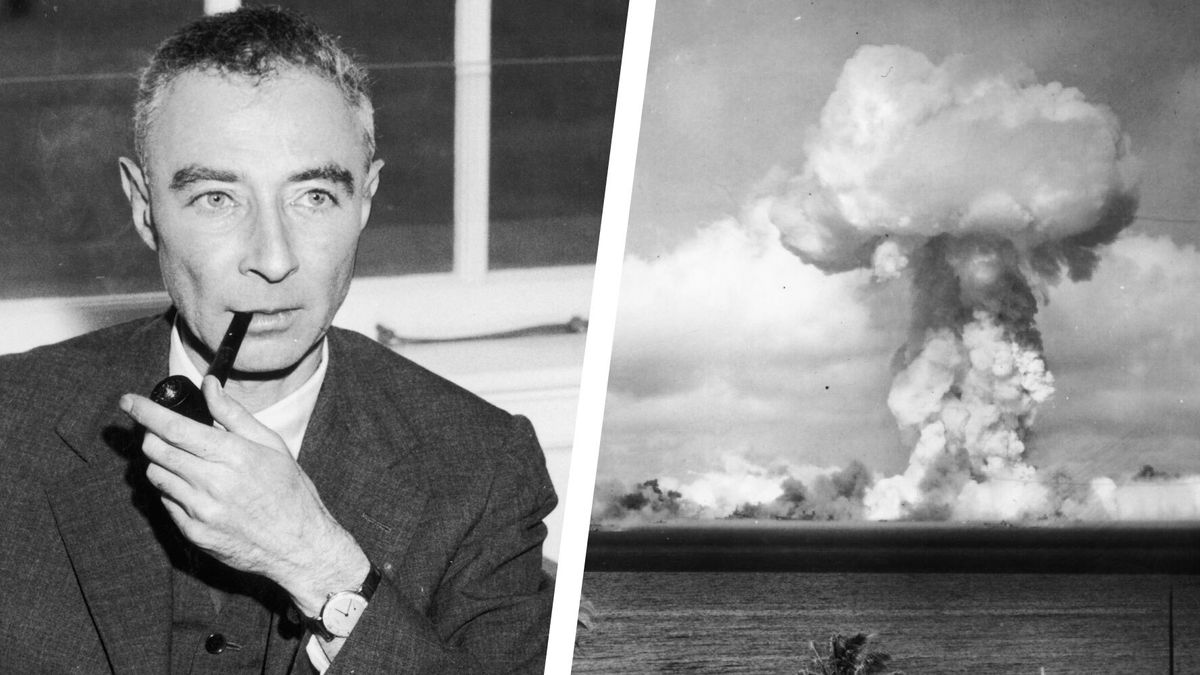
J. Robert Oppenheimer: The Father of the Atomic Bomb and His Complex Legacy
By Adedayo Oyetoke, Published on: July 22nd 2023 4 min, 771 word Views: 1235
Introduction: A Symphony of Science and Conscience
J. Robert Oppenheimer, born in 1904 in the bustling city of New York, carved a name for himself that would echo through the corridors of history. Known as the 'Father of the Atomic Bomb', his life story is one of profound intellectual brilliance, ethical dilemmas, and the haunting realization of what science can create when pushed to its limits. This extensive exploration aims to unravel the layers of Oppenheimer's life, from his academic pursuits to his pivotal role in the Manhattan Project, and his complex legacy in the nuclear age.
Early Life and Education: The Foundations of a Polymath
From a young age, Oppenheimer was nurtured in an environment ripe with opportunity. His parents, particularly his father Julius Oppenheimer, were affluent, providing not just financial support but also a cultural richness that shaped Robert's worldview. His early education at The Ethical Culture School in New York was foundational, fostering his interests in a wide range of subjects.
Oppenheimer pursued his undergraduate studies at Harvard University, where he graduated summa cum laude in chemistry in 1925. His insatiable curiosity then took him to Cambridge University, where he studied under J.J. Thomson at the Cavendish Laboratory. Here, he encountered quantum mechanics, which would become a central theme of his academic career.
In pursuit of deeper knowledge, Oppenheimer moved to Göttingen University in Germany, a mecca for theoretical physics. Studying under Max Born, he completed his Ph.D. with a thesis on what would be known as the Born-Oppenheimer approximation, a method still used to simplify molecular calculations today. His time in Göttingen also saw him interact with other luminaries like Werner Heisenberg and Niels Bohr, shaping his understanding of quantum theory.
The Manhattan Project: Science at War
The outbreak of World War II and the race against Nazi Germany for nuclear superiority heralded Oppenheimer's most famous role. In 1942, he was appointed to lead the Manhattan Project at Los Alamos Laboratory. His task was monumental: to orchestrate a collaborative effort among scientists from various fields to develop the atomic bomb.
The project led to the Trinity test on July 16, 1945, where the first atomic bomb was detonated. The success was monumental yet terrifying, leading Oppenheimer to reflect on the Bhagavad Gita's words, "Now I am become Death, the destroyer of worlds." This moment underscored the ethical quagmire of nuclear weaponry, a theme that would shadow Oppenheimer for the rest of his life.
Post-War Years: A Scholar in the Shadow of the Bomb
After the war, Oppenheimer became a key advisor on atomic policy, serving on the Atomic Energy Commission's General Advisory Committee. He was an advocate for international control of nuclear energy, believing in a world where atomic power could be harnessed for peace rather than destruction. His opposition to the development of the hydrogen bomb marked him as a controversial figure.
The Red Scare and McCarthyism
The Cold War era brought a dark chapter in Oppenheimer's life. His past associations with left-wing groups and his stance against further nuclear proliferation made him a target during the Red Scare. In 1954, after a highly publicized hearing, his security clearance was revoked, a move seen by many as politically motivated. The hearings are documented in detail in The Oppenheimer Security Hearing, which highlights the personal and professional devastation this caused.
Legacy: A Complex Tapestry
Oppenheimer's legacy is multifaceted. Beyond the atomic bomb, his contributions to theoretical physics, particularly in quantum mechanics and black hole theory, have left an indelible mark. His work on the Born-Oppenheimer approximation and with Hartland Snyder on gravitational collapse are foundational in their respective fields.
His life also serves as a poignant narrative on the ethics of science. The moral implications of his work have been debated in literature, film, and academia, notably in books like "American Prometheus" by Kai Bird and Martin J. Sherwin, which delves into his life with profound depth.
Conclusion: Reflections on a Life of Paradox
J. Robert Oppenheimer's story is one of brilliance shadowed by the specter of destruction. His journey through science, leadership, and the ethical landscape of the 20th century provides a lens through which we can examine the responsibilities of scientists in society. His legacy challenges us to ponder the dual nature of scientific discovery - its potential to both elevate and devastate.
As we look back on Oppenheimer's life, we see not just a scientist but a human grappling with the profound implications of his work. His story remains relevant as we navigate new frontiers in science, where the ethical questions are as pressing as the technological advancements.
Tags: J. Robert Oppenheimer, Manhattan Project, Nuclear Physics, Quantum Mechanics, Cold War, Ethics in Science
